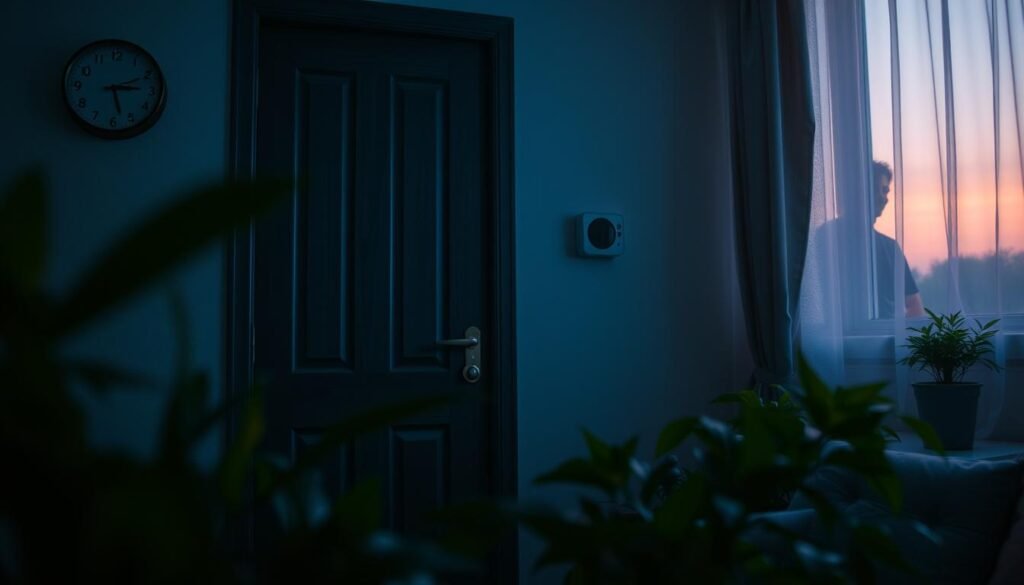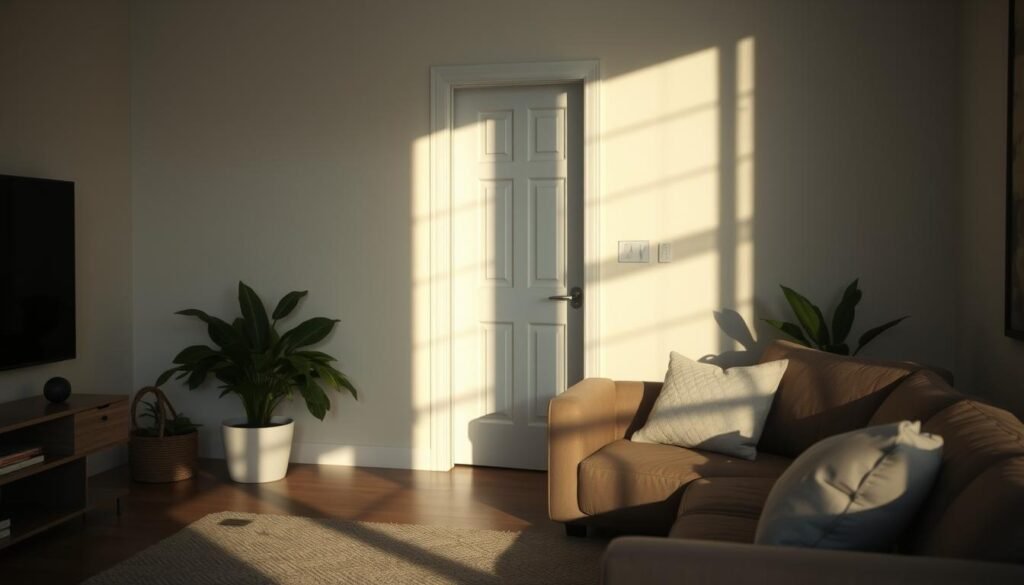Ever thought about your rights as a tenant when your landlord wants to show your home? It’s a common issue that can cause confusion and conflict. Let’s look at the balance between tenant rights and landlord duties during viewings.
Picture this: you’ve lived in a rental for two years. Your tenancy is ending soon, and your landlord starts setting up viewings. You’re busy packing, dealing with maintenance, and feeling stressed. Can you say no to these viewings? The answer might surprise you.
In the UK, tenants have more power than they think. Your right to enjoy your home quietly doesn’t end just because your tenancy is ending. This means you can refuse viewings if you need to. But what are the effects of making this choice?
Key Takeaways
- Tenants have the right to refuse access for viewings
- COVID-19 concerns are a valid reason to decline viewings
- Landlords must respect tenants’ right to quiet enjoyment
- Forceful entry without consent can lead to legal consequences
- Clear communication between tenants and landlords is key
- Alternative solutions exist for landlords facing viewing challenges
Understanding Tenant Rights and Landlord Responsibilities
Both tenants and landlords have clear rights and duties when it comes to property access. It’s important to find a balance between respecting tenant privacy and allowing landlords to manage the property.
The Tenant’s Right to Quiet Enjoyment
Tenants have the right to live peacefully in their homes. This means landlords must respect their privacy. They can only enter without permission in real emergencies.
Landlord’s Obligations for Property Access
Landlords must follow the law when accessing their property. They need to give at least 24 hours’ notice for inspections, repairs, or viewings. It’s important to plan around the tenant’s schedule and always ask for permission.

Legal Framework for Viewings in Tenanted Properties
The law protects tenant rights, with courts often siding with tenants. Even if agreements include viewing clauses, they can’t ignore the tenant’s legal rights. Landlords should respect the tenant’s decision to refuse access.
| Landlord’s Action | Legal Requirement |
|---|---|
| Property Access | 24 hours’ notice |
| Emergency Entry | Permitted without notice |
| Viewings | Tenant’s permission required |
Knowing these rights and duties helps keep a good relationship between landlords and tenants. Good communication and respect are essential for smooth property access.
The Importance of Communication and Respect
Good communication and respect are key when setting up property viewings. As a landlord, you must always ask for permission before showing the property. Be ready to adjust your schedule to fit your tenant’s needs.
In the UK, landlords must give tenants at least 24 hours’ notice before entering the property. This rule covers viewings and other visits like maintenance. Following this law helps protect your tenant’s privacy and respects their space.

When planning viewings, suggest different dates and times to be flexible. Keep a record of all your attempts to arrange a viewing. This can help if there’s a disagreement later. If a tenant says no, respect their choice and wait until the property is empty if needed.
| Communication Best Practices | Benefits |
|---|---|
| Provide 24 hours’ notice | Legal compliance and respect for tenant privacy |
| Offer flexible viewing times | Increased cooperation from tenants |
| Keep communication records | Protection in case of disputes |
| Respect tenant refusals | Maintains positive landlord-tenant relationships |
By focusing on clear communication and respecting your tenant’s rights, you can make property viewings smoother. This approach also helps keep your relationship with your tenant strong.
Can the Tenant Refuse the Landlord Access for Viewings?
Many tenants wonder about their rights during property viewings. The idea of quiet enjoyment is key here. Tenants can legally say no to landlord access for viewings, even with a viewing clause in the agreement.
The Legal Standpoint on Tenant Refusal
Landlords must give tenants at least 24 hours’ notice before entering. This is set by housing acts. If a tenant always says no, they might break their contract. This could mean they could be held responsible for any damage.
Consequences of Forceful Entry
Landlords who enter without permission could face harassment charges. They must respect tenants’ privacy. Breaking this rule can lead to fines of up to £30,000.
Dealing with Difficult Tenants
Landlords should stay professional with tough tenants. Keeping records of all communication is wise. If access is always refused, landlords might claim compensation from the deposit scheme. In some cases, waiting until the property is empty might be best.
| Notice Period | Legal Requirement |
|---|---|
| Repairs | 24 hours (Section 11, Landlord and Tenant Act 1985) |
| Property Condition Inspection | 24 hours (Homes Act 2019) |
| General Access | 24 hours (Housing Act 1988, Rent Act 1977) |
The Role of Tenancy Agreements in Property Viewings
Tenancy agreements are key in setting out the rights and duties of landlords and tenants. They cover how the property can be accessed, including for viewings in the last weeks of a tenancy. It’s vital to understand these agreements to keep the relationship between landlords and tenants smooth.
Viewing Clauses: Are They Enforceable?
Many tenancy agreements have clauses for viewings, usually in the last 28 days. But, these clauses are not simple. They help inform tenants about viewings but don’t take away their right to quiet enjoyment. The Housing Act 1988 says landlords must give at least 24 hours’ notice for any visit, including viewings.
Limitations of Contractual Terms
Contractual terms in access agreements can’t take away a tenant’s basic rights. Any clause that lets landlords in without notice or permission is not valid. Landlords must respect tenants’ right to peaceful living. If a tenant says no to access, try to find a better time and explain why the visit is needed, like for safety or maintenance.
In shared houses, landlords can enter common areas without notice but need permission for individual bedrooms. Remember, entering without permission can be seen as harassment under The Protection from Eviction Act 1977. This could lead to serious legal trouble for landlords. Always keep communication open and respect each other when setting up viewings or inspections.




